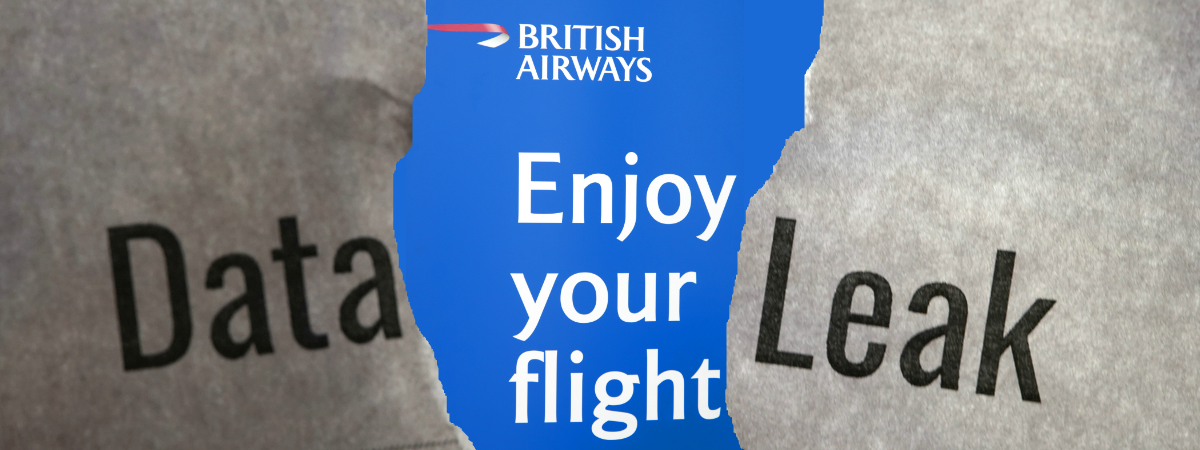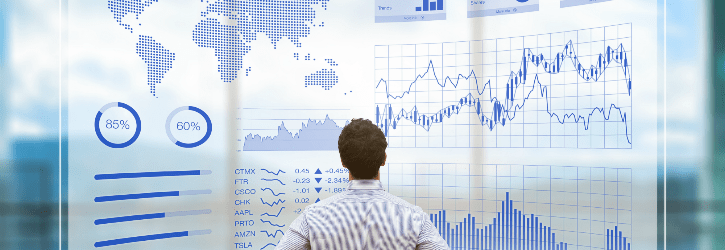
Welcome To The Data Leak Lawyers Blog
We focus on the latest news surrounding data breaches, leaks and hacks plus daily internet security articles.

We focus on the latest news surrounding data breaches, leaks and hacks plus daily internet security articles.

The BA data breach fine is set to be a record £183m; the first major fine of its kind in the UK since the new GDPR rules came into force last year.
The Information Commissioner’s Office (ICO) has referenced poor security that led to the information for hundreds of thousands of people to be comprised. We’re acting on behalf of a number of victims of the breach, and news of the fine has led to an influx of new inquiries.
There’s still time to join the British Airways data breach compensation action. We’re fighting for justice for victims on a No Win, No Fee basis as part of the pending group action for damages.

With the potential for deadlines for joining the pending BA group action for compensation arising from the 2018 data breach coming soon, here’s what you need to know.
If you were affected by one or both of the 2018 data breaches, you may qualify to make a claim for compensation. If you have received confirmation that you were affected, that should be enough for you to join our group. For more information about the breach, please see our information page here.
We have been representing claimants since news of the breaches hit the headlines last year, and our advice is to sign-up for a case as soon as you can. Here’s a quick guide for you.

You can join the British Airways group action on a No Win, No Fee basis today, and the process is quick, simple and easy.
We’re already acting on behalf of a number of victims in the action and have been doing so since news of the scandal hit the headlines. This is one of the dozens of group and multi-party actions our lawyers are fighting for justice in.
You can find out today if you’re eligible to join by checking the full eligibility criteria here.

Information sharing without consent or proper and informed consent can amount to a breach of important data protection laws like GDPR, and it may allow a victim to make a claim for compensation.
Information is being shared all the time, and some organisations are still hiding behind their privacy policies and terms and conditions which don’t always make matters too clear. One of the biggest problems is information being shared for marketing purposes, and people then being hounded by aggressive sales tactics. When it comes to confidential and sensitive data like medical information, we don’t want it shared for obvious reasons.
If your information has been shared without your consent, what can you do about it?

The act of unlawfully accessing personal data can land the offender in a lot of trouble, and it can pave the way for the victims to make a claim for data breach compensation.
Your rights are enshrined in law, and if your rights to information privacy are ever breached, you can be entitled to take legal action. In today’s digital age where information access and sharing are achievable at the click of a button, there’s a wealth of data for millions of people that can be accessed by many individuals.
But people can only access and process information where they’re authorised to do so and have a legitimate reason to do so. Any access of personal data that isn’t done so in accordance with important data legislation can be unlawful. We can represent victims who wish to take a case forward on a No Win, No Fee basis.

There has reportedly been an increase in South Gloucestershire Council data breach incidents when compared with previous statistics.
It’s understood that there were 184 security breaches last year, which was an increase of 46% from the previous year. Although this sounds like worrying news, the authority has reportedly confirmed that the increase is due to a greater awareness for reporting. With the introduction of GDPR last year, there have been huge increases in breaches being reported as knowledge of data laws and responsibilities has grown exponentially.
That being said, data breaches remain a serious problem, and when it comes to council data breach cases, the impact for the victims can be severe.

The misuse of police computer systems is a cause for concern, and it’s understood that the Police in England and Wales are having to deal with a number of internal disciplinaries over the issue.
Incidents include staff and police accessing databases to look at information improperly, and even cases where information is reportedly being passed to criminals. When you consider that the police are responsible for processing and storing a wealth of potentially personal and sensitive information about millions of people, the impact for the victim of data misuse or exposure can be significant.
Victims do have rights and can be eligible to make a claim for data breach compensation. No one is above the law, and all organisations – including the police – must abide by important data protection rules.

Healthcare systems data breach incidents are likely to continue rising, so what can you do as a victim of a breach, and can you claim compensation?
Compensation for a healthcare data breach is important. We’re not just talking about personal information when it comes to a medical data breach, we’re talking about incredibly sensitive health information. This is why data breach compensation amounts can be high for these kinds of cases given the impact a breach can have on a victim.
As a specialist firm of data leak lawyers who have advised thousands of people and are fighting for justice in dozens of group and multi-party actions, we may be able to help you.

If you’ve yet to start your claim for Bounty data breach compensation, make sure you take a look at this important advice about your rights.
The parenting advice website was fined by the Information Commissioner’s Office (ICO) in the wake of substantial data protection failures. The information for millions of people was illegally shared, and the fallout has been substantial.
In fact, just last week, East & North Herts NHS Trust announced that there will be no more ‘Bounty Ladies’ on the maternity wards of Lister Hospital. This is on top of the £400,000.00 fine and the compensation claims being taken forward against them.

If you’ve been the victim of a Home Office data breach, we may be able to assist you with a claim for compensation on a No Win, No Fee basis.
Recent research has indicated that there has been a spike in the recording and reporting of data breaches at the Home Office since GDPR came into force last year. Whether this is down to a greater number of breaches, or just greater awareness for reporting, is unknown. But with the Home Office dealing with a wealth of personal and sensitive information, victims of a data breach need to know their rights.
You can be eligible to make a claim for data breach compensation that stems from the Home Office. Read on for a little more advice.
EasyJet admits data of nine million hacked
British Airways data breach: How to claim up to £6,000 compensation
Are you owed £5,000 for the Virgin Media data breach?
Virgin Media faces £4.5 BILLION in compensation payouts
BA customers given final deadline to claim compensation for data breach
Shoppers slam Morrisons after loyalty points stolen
Half a million customers can sue BA over huge data breach
Lawyers accuse BA of 'swerving responsibility' for data breach
The biggest data breaches of 2020
Fill out our quick call back form below and we'll contact you when you're ready to talk to us.